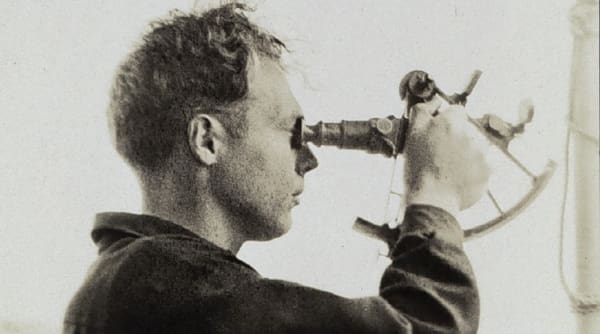Dear Father John, I was wondering if you could give me a bit of perspective. I recently asked a director to help me in my discernment of religious life. After he agreed I wrote out a summary of the context for my perceived call along with a list of  my vices/faults, graces/strengths, etc. The arrangement was that after reading the letter, we would talk, with the idea that I would write emails every week or two, and we would talk on the phone at longer intervals. I was confused and disappointed by our first meeting… I think he may really not know how to proceed… I was puzzled that he did not talk about anything I had written, except to say that it moved him. I guess my expectation was that he would ask ME questions, about my spiritual life, and that in answering them I would be more aware of what I needed to work on or think about. What should I do? I feel a bit strange about telling my director what to do, and I feel that this would affect his authority. If I tell him everything I want him to do, why I am going to him in the first place? I actually do want someone with some authority to guide me. Maybe I just need to find someone else?
my vices/faults, graces/strengths, etc. The arrangement was that after reading the letter, we would talk, with the idea that I would write emails every week or two, and we would talk on the phone at longer intervals. I was confused and disappointed by our first meeting… I think he may really not know how to proceed… I was puzzled that he did not talk about anything I had written, except to say that it moved him. I guess my expectation was that he would ask ME questions, about my spiritual life, and that in answering them I would be more aware of what I needed to work on or think about. What should I do? I feel a bit strange about telling my director what to do, and I feel that this would affect his authority. If I tell him everything I want him to do, why I am going to him in the first place? I actually do want someone with some authority to guide me. Maybe I just need to find someone else?
There must have been a reason why you asked this priest in particular to guide you. You must have seen in him something of the spiritual wisdom that you believe can help you in your own spiritual journey. So I would not recommend that you look for someone else quite yet. Here are some thoughts that may help you move towards a more satisfying spiritual guidance relationship. These ideas, I think, would be relevant for any spiritual direction relationship, not only for someone discerning a religious vocation. (By the way, you may find valuable discernment insights at www.vocation.com and www.imaginesisters.org.
Spiritual Direction as a Means not an End
First of all, remember that spiritual direction is not the only source of input for your spiritual life. It is not meant to be the only source of guidance. The Holy Spirit will continue to be your primary director. Your prayer, your spiritual reading, your participation in the sacraments, your personal reflection, your efforts to love your neighbor and fulfill God’s will in your life – all these are still major channels of God’s grace for you. You can still listen to God’s voice through these channels, find his light there, and move towards greater intimacy.
Sometimes we make the mistake of thinking that our spiritual director is supposed to be in charge of our spiritual growth. Not true. Spiritual direction is a valuable, and perhaps necessary, element in the pursuit of spiritual maturity. But each one of us is still in charge of our own lives – even God himself will never seize our freedom, and neither should a spiritual director (even though sometimes we feel like it would be a lot easier if they did!). God wants us to make use of spiritual direction, but he doesn’t want our spiritual directors to replace our own freedom and creativity. Our friendship with Christ is still our friendship with Christ.
Patience Matters
Second, I would encourage you to be patient. You mention that this priest, though experienced and knowledgeable in the spiritual life, has not been habitually involved in the ministry of spiritual direction. So there will be a learning curve for him. That’s okay. That’s natural. And, by the way, he will never be the perfect spiritual director. And you should be perfectly at ease with that!
Remember, the main protagonist in the spiritual direction relationship is actually the Holy Spirit. So, if you are doing your part to prepare and communicate, the Holy Spirit will be sure to act through the instrument of spiritual direction even if your Director is a bit clumsy. God can handle that. The mere fact of communicating our spiritual experiences to a director exercises a number of key virtues – like faith, humility, and prudence – and sometimes that’s all the Holy Spirit needs to keep us moving along the path of spiritual progress, regardless of the specific advice that the Director may or may not offer.
Suggesting vs Controlling
Third, you should feel completely free to make suggestions to your Director about the structure of your conversations and the topics to be covered. You making suggestions is not in and of itself controlling. And you can phrase your suggestions in a completely non-controlling way. For example, “Father, thank you for our conversation – your comment about X was very helpful for me. After we talked, I was reflecting, and I think it would help me next time if we maybe start with a prayer. Would that be okay? And then, to help me stay focused, I would like to make sure that even if a lot of subjects come up, we talk specifically about my prayer life, my apostolate, and my constant battle with discouragement. Do you think it would be okay to keep those three topics on our “list” every time we connect by phone? And I will be sure to update you on what I am experiencing in those areas on my email updates every couple weeks.” So you see, you can make suggestions that will be helpful for you, and they will not be threatening to your Director. Your taking the initiative in this way is not contrary to your wanting your Director to direct you. Your Director will surely give you specific recommendations as you continue developing your relationship, and as he continues to get to know you.
Looking Elsewhere
Fourth, what should you do if after a period of months you feel like no progress is being made? There is no obligation to continue receiving Direction from someone whose direction is not helping you. But I wouldn’t rush to a decision here. You will experience awkwardness, and so will your Director, at the beginning – especially since you are trying to have spiritual direction from a distance. But the awkwardness should diminish gradually. If a number of months pass and it doesn’t, then you should feel free to graciously conclude that the long-distance direction is not working. In that case, you could ask your Director what he would recommend, or simply thank him for trying to help, and then look for someone else.
Above all, however, I think the most important thing to remember is that spiritual direction is a means for growth; it is not meant to involve handing over to your Spiritual Director the responsibility for your spiritual life. Keeping that in mind will, I believe, help you have realistic expectations and take intelligent advantage of everything God’s Providence offers you.
PS: You might both benefit from reading Navigating the Interior Life – Spiritual Direction and the Journey to God.
+
Art for this post on Looking for Another Spiritual Director?: A man holding a sextant, photographer unidentified, 9 November 2004, TOR, PD from the National Oceanic and Atmospheric Administration as part of official duties, Wikimedia Commons.



